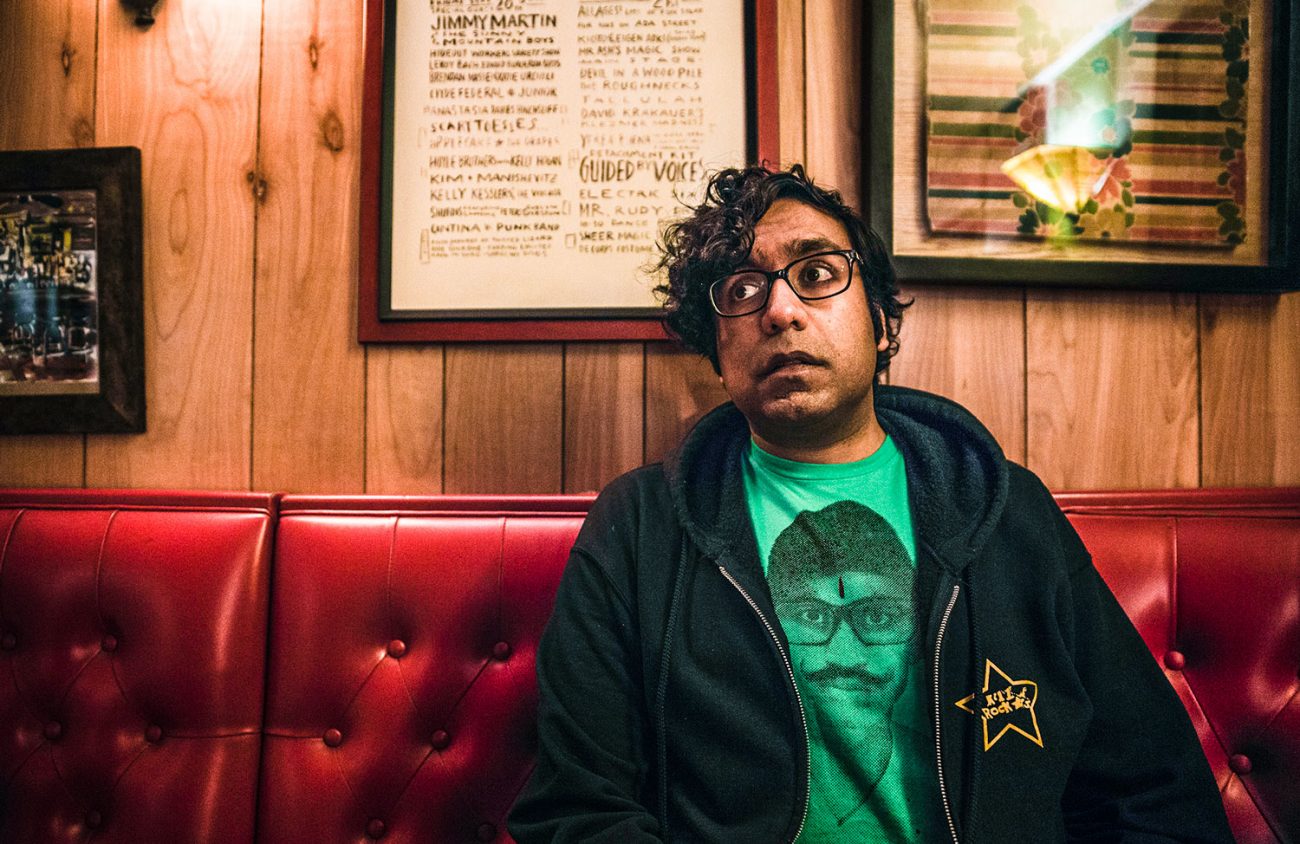Don’t call Hari Kondabolu a political comedian.
“I don’t talk about Democrats and Republicans,” the New Yorker says. “I don’t care so much about the ‘inside the Beltway’ stuff.”
Nevertheless, he has built a career observing and lampooning the American social order. Along with W. Kamau Bell he hosts the feisty podcast Politically Re-Active, and this month Kondabolu’s documentary The Problem with Apu premiers on truTV.
“The angles I see first are about race or gender,” Kondabolu says. “These are the things I think about every single day, so these are the things I gravitate to when I see them. It’s not like I put on a special pair of glasses to find the politics in it. To me, it’s not politics. It’s people’s lives.”
In advance of his appearance Thursday, Nov. 16, at the Hult Center, Kondabolu sat down with Eugene Weekly to talk The Simpsons, identity politics and life as Chicken Little.
Tell me a little about your upcoming documentary, The Problem with Apu.
The Problem with Apu is a documentary I made about the character from The Simpsons — the Indian convenience store owner — the impact a character like that makes when it’s the only South Asian-American character on American television.
I tried to make a documentary as funny as it could be while talking about some pretty interesting subjects. Of course, it’s about The Simpsons, which is one of my favorite shows. It has that kind of respectful criticism.
On the subject of national politics, I have to ask: Are we gonna be OK?
I feel like I’ve been Chicken Little for a long time, and the sky fell, so it’s hard to be positive. I think that if we don’t die in a nuclear war, we do have a chance to rebuild. I think there’s a lot of young people who are upset and they’re hungry. They want change. It’s exciting to know that’s coming up as much as the ugliness.
If anything, what’s going on gives me more evidence of the stuff I’ve been talking about. It’s become easier to convince people who maybe didn’t want to hear it before because it’s become so obvious that the president has said and done things.
Post-2016 election, some say the left has become too sidetracked with identity politics. Do you agree?
When people talk about identity politics, I’m trying to decode that: like, Black Lives Matter? People asking for their family members not to be deported? Are you talking about gay people fighting for their rights? Trans people saying I have the right use restrooms that reflect my gender?
The ultimate identity politics is white supremacy. That is something we saw marching in the streets of Charlottesville. We see that in subtle ways in the election of this president. We see that in institutions that value whiteness.
Is the left coalescing under the Trump administration or is this opportunity being squandered?
The left, broadly, I hope, is not the Democratic Party. This whole discussion of left and right — words end up having these meanings they’re not supposed to have.
Like “activist.” I hate being called an activist. It doesn’t mean what you think it means. When people hear the word “activist,” they have certain images: hemp necklaces and drum circles and people who have no sense of what it is to have a rough 9-to-5 job.
Yet if you tell somebody, do you think you should have Social Security available to you? Do you think your kid should have a fair chance to go to college? Fairer housing conditions? A health care system that actually looks after people? A lot of people who hate the word “activist” would say yes.
It’s about how do we create a fair world for as many people as possible, where people’s races and their cultures and their immigration status and how much their families had when they were born doesn’t impact their futures. Working in search of social justice — which fundamentally is how democracy works. You organize.
Hari Kondabolu performs 8 pm Thursday, Nov 16, at the Hult Center, $20-$22.50, all-ages. To hear more from this interview, check out EW’s What’s Happening podcast.
